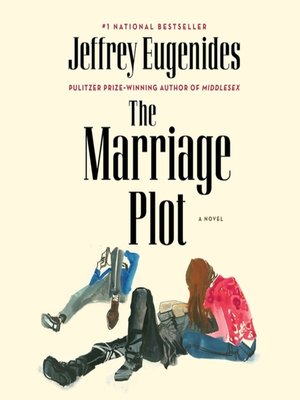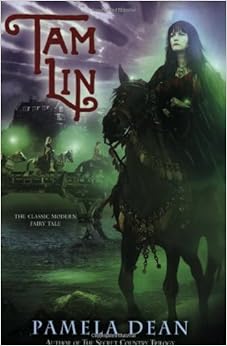On the drive east my mother read Annie Dillard’s essay “Total Eclipse” out loud to us in the car. We were on our way to Tennessee to catch the total solar eclipse of 2017, or the Great American Eclipse, as all the news stations were calling it. (I wonder why we are still attaching the words “Great” and “American” to anything) My parents had been planning this trip since last August, when they booked our hotel rooms in a town just outside of Nashville. As my mother read, I got more excited and apprehensive about seeing the eclipse.
The Annie Dillard essay is a masterpiece of suspenseful descriptive language. It puts you on edge and makes you want to crawl out of your skin. I have no pretensions that this blog post will even come close, so you should stop what you’re doing and get your hands on Ms. Dillard’s essay as soon as possible. That being said, I can’t let this momentous occasion pass without writing about it. It’s not often that something comes along that is completely outside the confines of lived experience. Outside of reading about it, there is no way to know what an eclipse will be like because it messes with our most basic experiential knowledge: the cycles of day and night; the behavior of shadows, birds, insects; the feel of the sun on a hot day. At the same time, our imaginations are so willing to fill in the gaps that I was almost worried about the eclipse being anti-climactic. I needn’t have worried.
The only other activity we had planned for our short time in Nashville was to visit Parnassus Books. Parnassus was co-founded by one of my favorite authors, Anne Patchett, after the closing of her favorite independent bookstore. It’s nestled in an unassuming brown stucco strip-center, which it shares with a Chipotle and Fox’s Donut Den. Even on a Sunday, the place was bustling. People were everywhere: chatting about books, availing themselves of the armchairs at the center of the store, and tripping over the shop dog, who looked ancient but could move surprisingly fast. Maybe the crowds were because it was eclipse weekend (and all of Nashville was packed), but I’m hoping it was because bookstores are making a comeback. I wandered the shelves in a daze, caught between my usual bookstore state-of-mind (focused and methodical) and being swept up by the buzz of excitement in the room. Standing in that bookstore felt like standing on the precipice of something: maybe because I’ll be starting my own job at an independent bookstore in less than a week, or maybe because bookstores have always been places of potential energy for me. There’s the potential of finding the perfect book, but also the feeling, as a writer, that behind each one of those books is a person, a person just like me. Or maybe the rush of excitement in the bookstore was part of something larger, some collective energy that was sweeping the city at the same speed that the moon was hurtling in front of the sun.
The next day, the day of the eclipse, we rose early. Really early. Everywhere else in the city had been so crazy that we wanted to take exactly zero chances with any of it: the traffic, the crowds, the mayhem. We had gotten tickets for an eclipse party hosted by Wildflower Farms an hour outside of the city. We drove through the rolling hills of Tennessee, the rising sun a giant orange orb in the sky. It made me want to see an eclipse like that, where the atmospheric distortion turns the tiny ball of the sun into a colossus. We passed farm house after farmhouse, and I wondered if any of these people had plans to go outside during the eclipse. It was all over the news, impossible to miss, but I wondered if anyone was still in the dark, unaware of what was about the happen. Champagne colored light filtered through the low-hanging fog in the fields on either side of us. We wound our way through the countryside toward the impossibly tiny town of Bethpage, where we turned onto an even smaller road, barely wide enough for two cars to pass each other. We almost drove right past our destination. It was a barn normally used for weddings, sitting in the middle of a wide field. Of course, we were the first people there.
As the morning wore on, more people started to arrive. They came from lots of different places: Indiana, Kentucky, Washington, DC. We tried out our eclipse glasses, staring at the small orange circle climbing towards the center of the sky. One of the other eclipse watchers had brought his camera and a telephoto lens, and he and my parents swapped camera-talk. It was amazing, how easily these people felt like friends. We talked about what we knew of eclipses, and my mom and I urged everyone to read the Annie Dillard essay. A few people worried about the light, fluffy clouds gathering on the horizon. Would they obstruct our view? Would we miss our chance? That’s what this felt like. A chance. A thing that we all cared enough about to drive however many hours for, for just a minute or two – a handful of seconds really – of something extraordinary.
Every “live” event that’s experienced now is experienced in two places: online and offline. (How strange that we call it a “live” event when all of our events are live, simply by virtue of us living them). An hour before totality where we were, my instagram was littered with crescent shaped shadows from the people experiencing a partial eclipse, and then images of the sun and the black thumbnail of the moon blotting it out.
In our own slice of reality, the light was changing. It happened slowly. The light was dimming, turning sepia colored. It felt a bit like looking through a weak pair of sunglasses. My mom stared at me and said, “Your hair looks redder.” The next thing that happened was the temperature change. Even though it had just been 94 degrees, and standing in the sun felt uncomfortably hot, now it was almost pleasant. Summer to fall in a matter of minutes. Someone told us that it had gone from 94 to 81. My mom counted down the minutes to totality out loud. None of us knew where to look. I watched the horizon, hoping to see the shadow of the moon slam into us. Hoping to see the hard line between day and night. It didn’t happen that way.
Instead, it was as if someone was sliding a dimmer switch in the sky. The blue of sky deepened in a matter of seconds. A chill shot through the air. The horizon glowed tangerine with sunset no matter where we looked. My head snapped back and I saw it. The corona around the moon where the sun used to be. In all the pictures of solar eclipses I’ve seen, totality looks flat, just a white ring around a black disk. In real life, a kind of tunnel vision happens, as though everything else is suspended from that one tiny spot in the sky, and we’re hanging there, necks craning, hoping whatever is holding us in place doesn’t break and we go spinning out into space. Suddenly the world around me, the grass, the trees, felt foreign and inconsequential compared to the orb hanging above us in the sky. I was vaguely aware that it felt like something out of a sci-fi movie, the closest thing to a sci-fi movie that I think I’ll ever experience in my life. One of our new friends had brought a white towel which they laid out on the grass. On it, you could just barely see slim, silvery shadows flickering across the surface. This, I had read earlier, was caused by the sunlight diverting around the peaks and valleys on the moon. Atmospheric distortion caused the shadows to dance and flicker, like light in the bottom of a swimming pool.
We were submerged in night for two minutes and thirty-nine seconds, but it felt much shorter. As I watched, a spear of light appeared on one side of the disk, and then, in a matter of seconds, the daylight returned. The whole experience was a bit like submerging yourself in murky lake water on a sunny day. For a few minutes everything is brown and moss green, maybe you catch the mysterious glimmer of a fish eye as it glides silently past, and then you come up for air and the world is bright and sparkling and new. Around us, the world returned to its dusty sunglass-tinted state, but it was such a change from the twilight we’d just experienced that it felt like everything had just snapped back into place. The only tell: air that was unnaturally cool for midday in August.
It felt as though the world righted itself much quicker than it had come undone. Maybe the anticipation was gone. Maybe our brains had already filed away our new experiences, and so it knew what to expect. We hung around for a little while, retreating to the barn where it was shady and cool as the heat returned. We exchanged contact information with our fellow eclipse-watchers, promising to share the pictures we’d taken. And then people began to tickle back to their cars, back to their normal lives.
It’s difficult to say what impact this experience will have now that it’s over. I hesitate to call it life-changing, because my life hasn’t changed one bit. But it is significant. It does tell us something about the universe, ourselves. First of all, the eclipse reminded me that the universe is a system. It’s like the gears in a gigantic clock, moving so fast that we can’t see them, can’t even fathom them. The eclipse momentarily slowed one of those gears down, let us witness it in all of its silent, calculated grace. A glimpse like that comes so rarely that we have to take every opportunity we can to experience it. I expected to feel small in the wake of the eclipse. I expected to recognize how tiny I was compared to the vastness of space. But I didn’t feel that. Instead, I felt closer to it somehow. The eclipse was strange and intimate, like someone telling you a secret that makes all of their behavior suddenly make sense. I feel more knowledgeable, like I’ve gained some new insight into how things work, even if that’s only the knowledge of what it’s like to see the world momentarily go dark. Maybe it’s silly to feel this way, but I do. Maybe it’s silly to travel hundreds of miles for something that lasts under three minutes. Maybe it’s silly to marvel and laugh and gasp with strangers, to take a million photos, and make lofty analogies about something as simple as the moon moving in front of the sun. But if that’s silly, then count me in. Because that is togetherness, and wonder, and knowledge, and power, and I’ll take that over cynicism and boredom any day. Especially hot days in August, when the sun blinks and the earth is cool again.











